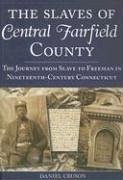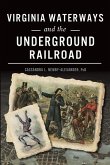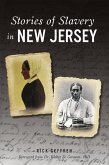From the framework of everyday life including the slave-master relationship, housing and dress, to the role of slaves and free blacks in the Revolution that hastened the demise of slavery in Connecticut, Cruson's accessible and intriguing rendering of slave life in central Fairfield County will fascinate and inform readers. Utilizing local slave archaeology, Cruson presents exciting recent discoveries that shed light on African American spiritual practices. He goes on to tackle the complicated issue of the anti-slavery activity, discussing the problems with the abolition movement in Fairfield County in the 1830s and 1840s and questioning prevalent local folklore about the Underground Railroad. This meticulously researched book uses a database of over seventy slaves from Newtown, enhanced with information from the neighboring towns of Redding, Easton and Weston as well as anecdotal information from Trumbull and Monroe.
Bitte wählen Sie Ihr Anliegen aus.
Rechnungen
Retourenschein anfordern
Bestellstatus
Storno



